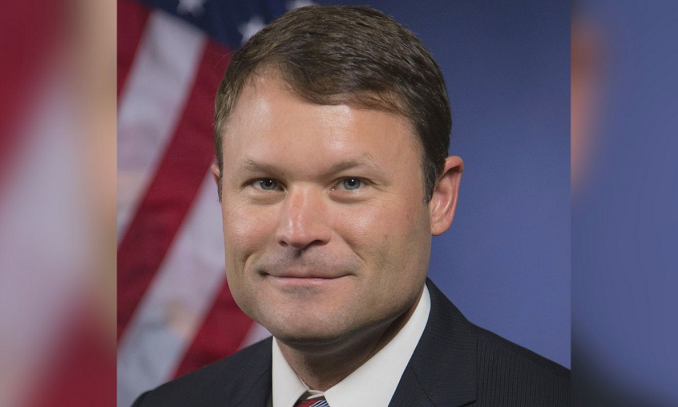A federal judge is blocking a Biden-era abortion rule from being weaponized against Catholic bishops. Judge David Joseph of the U.S. District Court for the Western District of Louisiana issued a court order last week barring the Equal Employment Opportunity Commission (EEOC) from applying a rule interpretation in the Pregnant Workers Fairness Act (PWFA) to the U.S. Conference of Catholic Bishops (USCCB) and other Catholic organizations.
Joseph, who was appointed by President Donald Trump, wrote that the PWFA rule interpretation “would require [the bishops] to make accommodations for abortions, contraception, sterilization, artificial reproductive technologies, or surrogacy in violation of their sincerely held religious beliefs.” He also blocked the EEOC from investigating the USCCB “regarding allegations that the Bishops have failed to make accommodations for abortions, contraception, sterilization, artificial reproductive technologies, or surrogacy as required by the laws, regulations, or guidance” referenced previously.
The EEOC rule interpretation was issued last year, under then-President Joe Biden, and would have required organizations such as the USCCB to “provide reasonable accommodations” for employees to get abortions, contraception, sterilization, in vitro fertilization (IVF), and other “reproductive technologies” forbidden by the Catholic Church, or surrogacy. The rule interpretation would have also barred employers or employees from speaking against abortion in the workplace. Joseph had previously issued an injunction shielding the bishops only in cases where an abortion was determined to be “elective,” allowing the EEOC to enforce its rule interpretation in all other respects. Last week’s court order replaces that injunction and offers the USCCB broader protection.
Mary Szoch, director of the Center for Human Dignity at Family Research Council, said in comments to The Washington Stand, “The Pregnant Workers Fairness Act should be all about protections for pregnant workers. The Biden-era regulations enforcing the law, however, twisted it into one that could be used to force religious employers to provide ‘accommodations’ for women choosing to abort their unborn child.” She continued, “Thankfully, Judge Joseph recognized that the EEOC would be seriously violating the religious freedom rights of the USSCB by forcing them to make accommodations for several practices that Catholics believe constitute the killing of innocent unborn children.”
“We are grateful for this ruling, but this case highlights how important it is for voters to vote for both pro-life members of Congress and for a pro-life president,” Szoch observed. “Some argue that the president can’t do a lot on life, but that couldn’t be further from the truth — and this proves it. If a pro-life administration had created the regulations enforcing the Pregnant Workers Fairness Act, the bishops would not have faced this issue.”
In its initial complaint against the rule interpretation, the USCCB argued that the EEOC “is doubling down to impose [a] controversial nationwide abortion-accommodation mandate on the workplaces of hundreds of millions of Americans” and “requiring employers to knowingly accommodate abortions and imposing a speech code creating substantial liability on employers who express opposition to abortion and refuse to support it in their policies.” The USCCB declared, “Congress was right and EEOC is wrong. The PWFA is not an abortion-accommodation mandate.”
The bishops also noted that the EEOC “also insists on nullifying the explicit religious exemption that Congress wrote into the PWFA.” Congress “imported” Title VII’s religious exemptions when writing the PWFA, allowing religious employers to make employment decisions based on their sincerely held religious beliefs. “Yet now EEOC claims the
exemption bars only religious discrimination claims — which aren’t authorized by the PWFA in the first place. That renders the exception a nullity, protecting employers from PWFA claims that don’t exist,” the USCCB wrote.
According to the USCCB’s complaint, the EEOC’s rule interpretation is rendered unconstitutional and illegal by violating the Administrative Procedure Act (APA) in two ways. “First, the Final Rule exceeded Congress’s grant of statutory authority. EEOC’s abortion-accommodation interpretation of the PWFA, and its underlying interpretation of Title VII, are contrary to the statutes’ plain text and purpose: intentionally ending a pregnancy is opposed to both pregnancy and childbirth, and is not a related medical condition to either,” the complaint observed. “Second, EEOC’s misinterpretation of the PWFA’s religious exemption to cover only claims of religious discrimination eviscerates the exemption. These two flaws are fatal and require that the Final Rule be set aside.”
The Catholic University of America and several Louisiana-based Catholic dioceses are also parties to the lawsuit. The Becket Fund for Religious Liberty, which is representing the USCCB and the other Catholic institutions, said in a statement shared with TWS, “Winning this case confirms important precedent that federal agencies cannot unnecessarily force religious people to violate their beliefs.”
LifeNews Note: S.A. McCarthy serves as a news writer at The Washington Stand.











